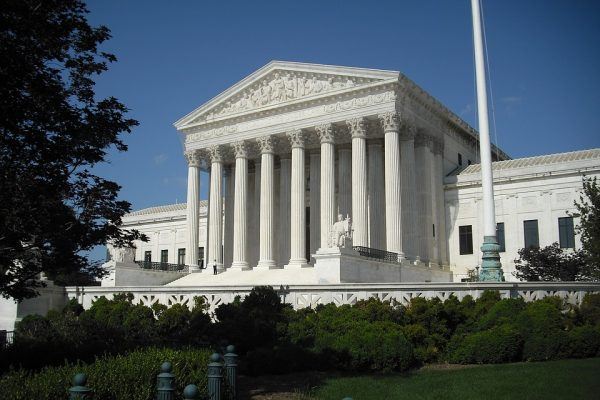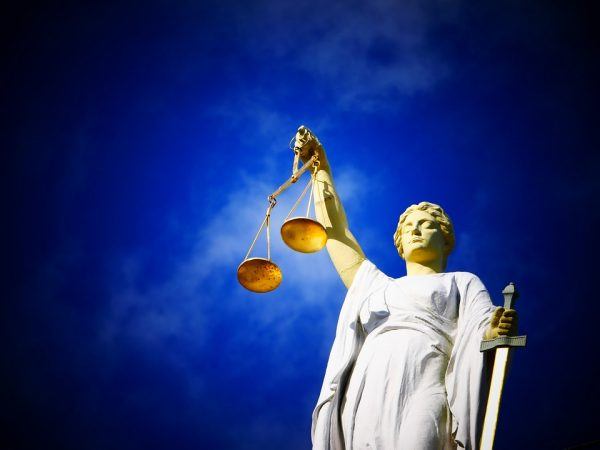President Trump has just been given the power of God and has decided to use this power to destroy the universe and plunge all of humanity into eternal purgatory! Translating that into non-liberal speak, President Trump has selected a replacement to Supreme Court Justice Anthony Kennedy. I understand the importance of this position, but for those who actually understand the purpose of the court, this should not be such an emotional event. I hate to be anti-climactic, but in reality, the Supreme Court really should be the least impactful of any of the three branches. Let us review a quick civics lesson.
The Constitution of the United States consists of only seven articles, all of which detail the running of our federal government. They are:
Article I: Legislative
Article II: Executive
Article III: Judicial
Article IV: States Relations
Article V: Mode of Amendment
Article VI: Prior Debts, National Supremacy, Oaths of Office
Article VII: Ratification of the Constitution
In addition to these, there are 27 amendments, the first ten of these being the Bill of Rights. What some may not realize is that many of the founders would not ratify the Constitution without these amendments being added to the document. So great was their fear of government power, they demanded that these rights be specifically spelled out. In fact, Article X of the amendments clearly states their desire for limited federal power: “The powers not delegated to the United States by the Constitution, nor prohibited by it to the States, are reserved to the States respectively, or to the people.”
The total length of the Constitution is only 7,591 words (4,543 without the amendments). In comparison to other countries, our constitution is quite short. For example, according to comparativeconstitutionsproject.org, France’s Constitution is 10,180 words, Germany’s is 27,379, and Mexico’s is 57,087. What is interesting, however, is the amount of space allotted to each of the articles. The first article of the Constitution, which authorizes and empowers the House and Senate, takes up approximately half the total document. Clearly this makes sense. The House and Senate are the people’s voice (in theory) and do the majority of the legislative work. The second article, detailing the powers of the president, accounts for approximately 20 percent of the total. However, when it comes to the courts, Article III accounts for less than ten percent of the Constitution. Why is this the case? Are the courts the least important of our three branches? Well, sort of.

The judicial branch was never conceptualized to be a legislative arm of the government. This is not to say that they are not allowed the ability to strike down unconstitutional actions. In fact, Alexander Hamilton wrote in the Federalist Paper No. 78, “The interpretation of the laws is the proper and peculiar province of the courts […] Whenever a particular statute contravenes the Constitution, it will be the duty of the judicial tribunals to adhere to the latter and disregard the former.” However, what must be noted here is the lack of reference to constructing laws or rights that previously did not exist.
It is here that many of our citizens apparently do not understand the purpose and function of the courts. This would, understandably, affect their reaction to the nomination of a conservative judge. What the left wants are judges who are judicial activists. As defined by Merriam-Webster, judicial activism is “the practice in the judiciary of protecting or expanding individual rights through decisions that depart from established precedent or are independent of or in opposition to supposed constitutional or legislative intent.” In other words, judges creating laws and rights that do not actually exist in the Constitution.
One of the greatest examples of this would be the very case that the left is using to stir up opposition to President Trump’s nomination, Brett Kavanaugh: Roe v. Wade. In preparation for this article, I read the entire decision (not for the faint of heart) because I wanted to have firsthand knowledge of their decision process. In essence, the court found the Due Process Clause of the Fourteenth Amendment gave a woman the right to unrestricted access to abortions during the first trimester of pregnancy. Their reasoning for this was extensive but completely arbitrary and without solid basis constitutionally. Justice Rehnquist wrote the dissenting opinion. In this, he stated, “Even today, when society’s views on abortion are changing, the very existence of the debate is evidence that the ‘right’ to an abortion is not so universally accepted as the appellant would have us believe. To reach its result, the Court necessarily has had to find within the scope of the Fourteenth Amendment a right that was apparently completely unknown to the drafters of the Amendment.”

In fact, the Supreme Court’s website celebrates its power to reconstruct the Constitution. “The complex role of the Supreme Court in this system derives from its authority to invalidate legislation or executive actions which, in the Court’s considered judgment, conflict with the Constitution. This power of ‘judicial review’ has given the Court a crucial responsibility in assuring individual rights, as well as in maintaining a ‘living Constitution’ whose broad provisions are continually applied to complicated new situations.” The problem is that this very concept is not within the framework of the Constitution. Article V of the Constitution states, “The Congress, whenever two thirds of both Houses shall deem it necessary, shall propose Amendments to this Constitution, or, on the Application of the Legislatures of two thirds of the several States, shall call a Convention for proposing Amendments, which, in either Case, shall be valid to all Intents and Purposes, as Part of this Constitution, when ratified by the Legislatures of three fourths of the several States, or by Conventions in three fourths thereof, as the one or the other Mode of Ratification may be proposed by the Congress…” Nowhere in that article is there a mention of the Supreme Court. This is because the Supreme Court was never intended to be a part of the modification to our constitutional rights.
See, when liberals get angry about the nomination of a conservative judge, they do so out of a desire to bypass the constitutionally-decreed process of securing our rights. To actually get Congress to come to a consensus is much too arduous a task. Therefore, it is simply easier to go to the courts and have them decree rights that simply did not exist before. The court, simply put, had no standing to create a right where one did not exist. The proper process for the establishment of this would have been for Congress to amend the Constitution.
Needless to say, this would have been unlikely. As Justice Rehnquist pointed out, there was clearly a lack of consensus on the moral grounds of abortion: “The fact that a majority of the States reflecting, after all, the majority sentiment in those States, have had restrictions on abortions for at least a century is a strong indication, it seems to me, that the asserted right to an abortion is not ‘so rooted in the traditions and conscience of our people as to be ranked as fundamental’…”
The truth is that the Supreme Court has stepped well outside of its mandate and intent. The nomination of conservative judges will not cause the system to collapse. Instead, it will, if the judges execute their duties as intended, force Congress to actually do their job and create laws to govern the country in lock-step with our founding principles.
















